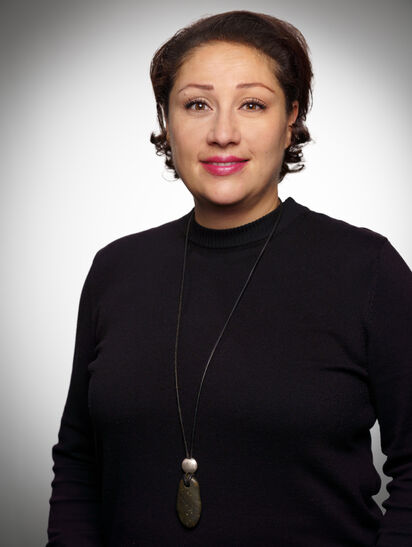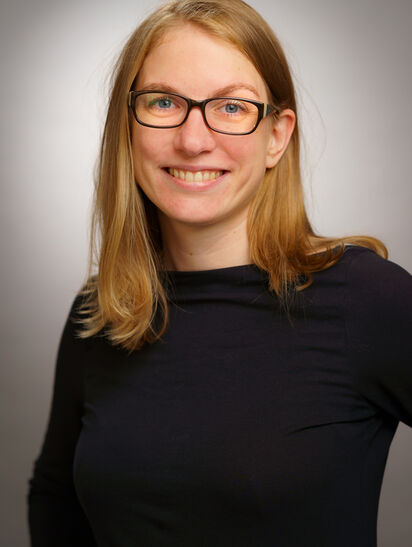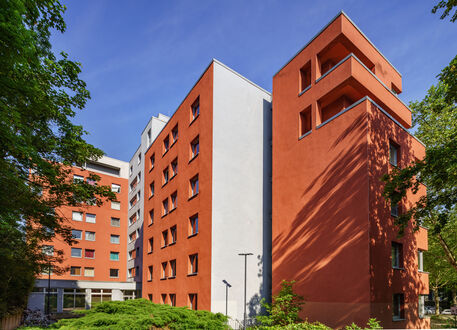To help you settling into your university life, we have compiled some of the key information and organisation that you will need to know during your studies. There are sorted alphabetically so that you can find them quickly, and we have also gathered some useful tips.
Check right at the start of your studies who you can turn to when you have questions and need help. Your contacts can be advanced students, lecturers or the study advisors of the different programmes.
Central Advisory Service (ZSB)
Alumni is what we call graduates of university, i.e. those who have already finished their degree programme.
AStA is a German abbreviation and refers to the general student union, the Allgemeinen Studierenden Ausschuss. This organisation is manged by the students themselves. Your financial contributions help the volunteers of the AStA to organise life on campus. The AstA people support you in all matters of your studies or if any problems occur, and they organise different kind of trips or lectures. You can also by office supplies and use their printer for low fees at the AstA shop - and let's not forget the parties which they organise, too.
Click here to reach the AStA website
These abbreviations are taken from English and thus easy to explain. They refer to the degrees you can obtain from our university. B is for Bachelor, M is for Master, Eng is for Engineeering, and Sc is for Science. In other words, you can either obtain degrees in Engineering or in Science (Bachelor for undergraduate and Master for graduate students).
The term campus refers to the entire premises of the university. You can find a map of all buildings here.
Your performance at THGA is graded using the credit point system of ECTS (European Credit and Transfer System). You need a certain number of credit points to apply for your final examinations, e.g. the Bachelor thesis. You will gain credit points in lectures, seminars and exercises. How many credit points you can get for each course depends on the workload involved. The more credit points, the more extensive the exam. You can find more information on this system here.
Time is relative - and often, when you expect a course to start at 10.00am, it actually starts at 10.15am. Why is that? That is because of the academic quarter hour which is quite common at German universities. Whether courses start at the full hour or fifteen minutes later is marked in the course programme as s.t. (full hour) and c.t. (quarter past the hour).
THGA features three departments (what other universities often refer to as faculties) and the Reseach Center of Post-Mining. Our three departments are:
Department 1: Geo-Resources and Process Engineering
Department 2: Mechanical Engineering and Material Sciences
Department 3: Electrical Engineering, Information Technology and Business Engineering
The examination regulations specify the conditions that students need to meet if they want to take exams at THGA. They also provide general information on how study programmes are organised to help you plan and manage your studies. Some rules only apply to specific programmes, so please check those exam regulations of your programme. If your degree programme is in English, the exam regulations are available in English, too. Please contact your study advisor.
Although you are a fresher and you may not think of examinations right now, they do approach sooner than you think! Therefore, it is quite useful to get familiar with the exam regulations and the exam dates at the end of the lecture period and before the next semester begins. Fail to prepare is prepare to fail! Before the end of the semester, the Central Advisory Service also offers a webinar on how to enrol for exams. You can find more information here.
At school, you had classmates, and at university, you have fellow students, i.e. the people you are studying together with.
There are different ways to fund your studies in Germany (and also programmes to fund your studies abroad). One option is the students' grant according to German education law (BAföG), other options include scholarships and students' loans. You can find more information by clicking on the links below.
The HisInOne system, which you can access at meine.thga.de, is an important organizational tool throughout your studies and beyond. Once you are logged in, it is more or less like an online secretariat for you. You received your access data during the application/enrollment process.
You can use my.thga.de to register for each semester and for exams. You can find the current lecture schedule, access the student services, the library system and the Moodle dashboard. You can also find the Mensa menu there as well as the latest campus news.
One key aim of THGA is to equip our students with the tools and knowledge to contribute to a better and sustainable future. Our Future Mission runs several smart research projects and international activities in which we share our knowledge - together with you.
Like many universities, we offer Eduroam WFI access to students and employees.
Moreover, internet access is available via our THGA network. You can access this using your student ID number and your password. This is important to access courses on Moodle, our learning platform, where you can attend lectures and courses electronically and organise your digital studies on the spot.
Even if you have just joined our university - get involved. There are a number of organisations and committees that rely on volunteer students, e.g. the senate, the AStA or the students' parliament. Find out more about what these organisations do and what you can do there by clicking here.
If you need to take a semester off, there can be a number of reasons for that. Our website provides more information on which reasons will qualify you to do so and what the official process is.
At school, you spent time in a classroom; as a student, you will spend times in lecture rooms and lecture theatres. Where to find them? The Campus map will help you!
Internet and online databases are useful tools to find information, but one key place of learning and information is, of course, our library! This is the right place where you find plenty of media (not only books) and also working places. Visit the library as soon as possible and learn how to use the indexed catalogue system.
The Mensa is our university canteen and a hub of student life: this is where you meet people and socialise! The Mensa building is right in front of the Student Services building, and you can get meals for 2-6 euros there. Moreover, there is a selection on sandwich rolls, salads and snacks. You can find more information here.
THGA, like many other universities, runs a learning platform using Moodle. In this learning management system you can find the course documents and other contents and more information on study programmes or departments. Other functions such as our Career Service, our International Office or our Central Advisory Service also have their own Moodle courses in which you can find useful tips and offers.
The Covid-19 pandemic has changed the way we organise teaching dramatically - many lectures and seminars are now being taught online or in a hybrid format, i.e., with some students in the lecture room and others joining from home. Please check in which format the teacher intends to do their courses - you can find information about that in your university calendar.
In addition to lectures and seminars, there are a number of practical exercises students have to do, usually during the semester and in the laboratory facilities of THGA. Be aware that the German word, Praktikum, also means work placements in companies - these are usually not mandatory.
Once you have been admitted as a student at THGA, you will be enrolled, i.e., you will be entered in our student register. Now you are officially a student and can attend lectures and courses and take exams. Once you have completed your studies and performed your last exams etc., you will be deregistered from our students's register and thus stop being a student.
Once enrolled, you still need to re-emrol with the university for every semester. You need to do this during the periods specified by the university - if you fail to do that, you will be exmatriculated, i.e., removed from the register of students to the end of the ongoing semester. To avoid that, make sure you know the deadlines (usually 15 January for the summer semester and 15 July for the winter semester).
To re-enrol, you need to pay the semester fee/social contribution within the period stated by bank transfer and to submit any documents necessary to the Student Office (evidence of work placements, health insurance confirmation etc.) - once this is done, your re-registration is processed automatically.
Good to know: you can also manage any changes when re-enroling, e.g., a change of your major or your study course.
Working in a scientific environment and following rules of, for example, academic writing, is something that is quite new to many freshers. In particular, proper citing and referencing are two cornerstones of scientific work (e.g., to avoid plagiarism). Please make use of all the information about that topic which are provided by our university and learn the rules as soon as possible. Some study programmes also offer mandatory courses (introduction to scientific work methods): check the information available there. Moreover, our Central Advisory Service also offers certain courses on that matter. You can find more information here.
Although THGA does not charge a tuition fee, there is a small semester fee to be paid for students' services (e.g., the AStA) and the ticket for public transport which is valid in the local transport association (VRR) and also in North Rhine Westphalia (e.g., for trips to Cologne or Münster etc.). This ticket also enables you to get a discount for many entry fees and events. At the moment (winter semester 2023/24) the semester fee is 252.12 euros for the entire semester.
What is usually known as semester holidays and semester breaks actually specifies the periods where no lectures are taught at the university. However, that does not mean our students have a lot of free time: they need to prepare for and sit exams, which are usually taken in the first and last week of this lecture-free period. You can find an overview of the lecture-free periods and exam dates here.
Seminar teaching means, contrary to lectures, that smaller groups are taught, usually up to 35 students. These seminars focus on fundamental and specialist knowledge, and it is, of course, easier to get to know fellow students in such a small group. These seminars are also more interactive: There is a stronger discussion of topics and methods can vary. For example, students are supposed to work in groups, present a paper or go on a study trip.
The standard study period (SSP) defines the number of semesters which are needed to complete the studies successfully according to the respective exam regulations. For full-time bachelor students, this usually means a SSP of six semesters, for part-time bachelor students, this means nine semesters. That is the assumed standard, but it does not mean that students are obliged to finish in this period. However, the SSP often does impact scholarships or students' grants - which is why it is important to apply for a semester of leave etc. in order to avoid any problems when you study longer.
The Students' Office accommodate both the Admissions Office and the Examinations Office. The team looks after the students at THGA and support them concerning enrolment, planning and managing their studies and exams.
Revising course content together with your fellow students often helps to better understand what you need to know, helping all of you to get better results. Often, small study groups are perfect for this as people can work together on tasks, so you might want to start searching for fellow students who want to do the same quite early. Such groups are also ideal when preparing for exams. The Central Advisory Service provides a Moodle course explaining the different network forms that are available, from a group run on Discord by the AStA to groups on WhatsApp hosted by THGA students.
The German university system distinguishes between two types of semesters: those that you have spent at university altogether, also considering previous study courses or semesters at other universities (university semester), and those that you have been enrolled in your current study programme (study semesters).
Our university lecturers and tutors will play a crucial part in your life as a student. You will meet them during your courses, of course, but you can also have a look at them, and find out where their offices and when their office hours are. This information you can find by clicking on the links below.
Our transcript of records is similar to a certificate or a report. It usually lists the following:
- all examinations taken
- all courses attended (name and period)
- number of ECTS credit points gained
- all examination grades
Although there are no preliminary annual reports like at school, you can already request a transcript of records before you have completed your studies. This document is needed to apply for a students' grant extension or a scholarship when you are in an advance semester.
To help you keep up-to-date on all of your courses in a semester, please check the university calendar which provides all necessary details such as lecture rooms and times.
Information on how to read the university calendar is provided in our Moodle course Neu an der THGA.
The weekly semester lessons define the scope of a course. One lesson is 45 minutes long. If your course is given as 2 weekly semester lessons, it is taught every week for 90 minutes over the entire semester.
More and more students are joining THGA from abroad. Our International Office advises and supports international students in all matters of university life or practical matters such as places in a students' residence. If you have any problems or need to talk to someone in confidence, you can also contact our Integration Management. More valuable tips and information for a great start in Germany are provided in our Moodle course Neu an der THGA.
More Information
Contact
Lucine Harutyunyan - B.A. Study Advisor
- Lucine.Harutyunyan@thga.de
- Telephone
- +49 234 968-3150
- Office
- G1 R024

Jessica Wixfort - M.A. Study advisor
- Jessica.Wixfort@thga.de
- Telephone
- +49 234 968-3150
- Office
- G1 R024




